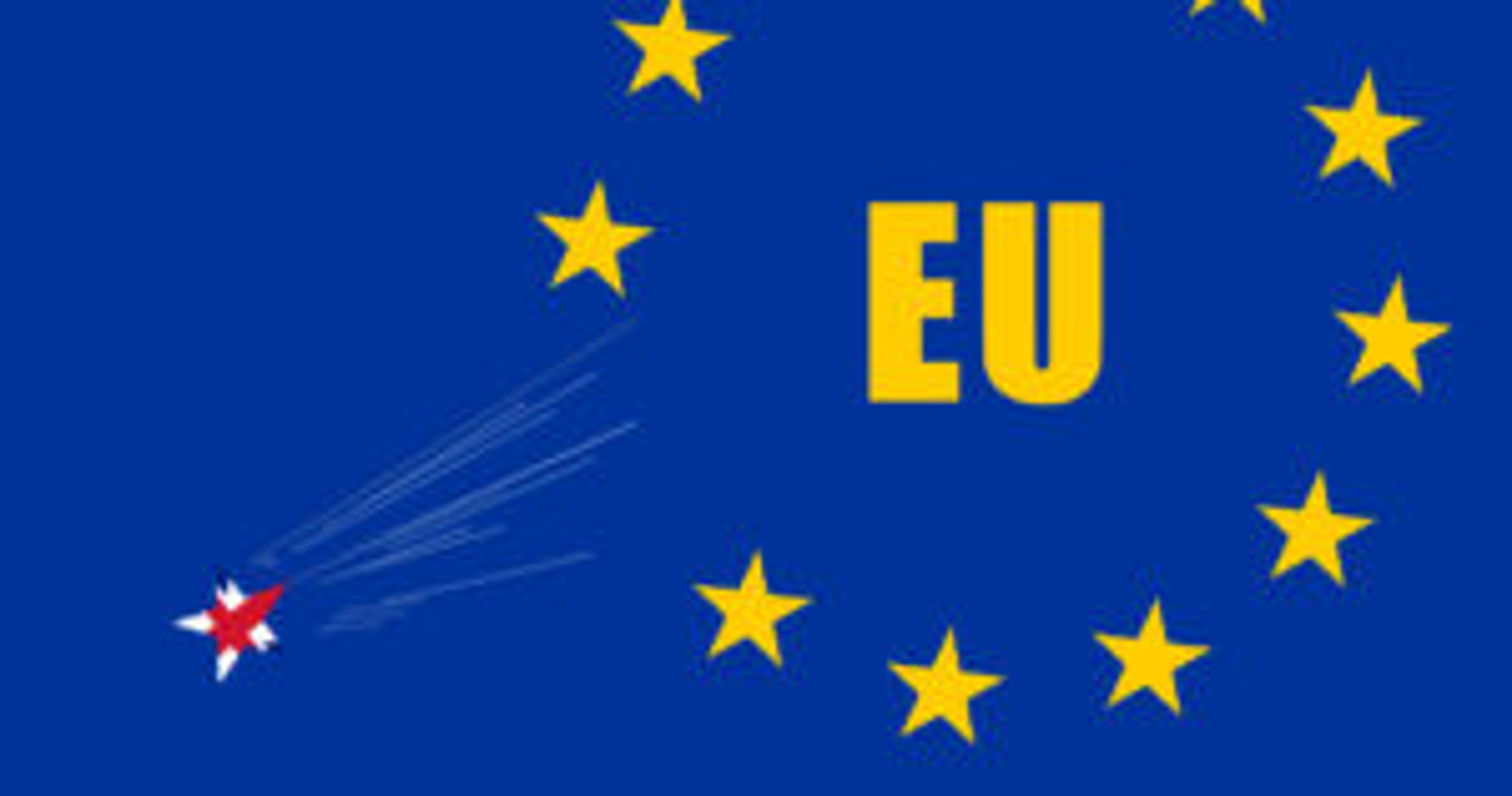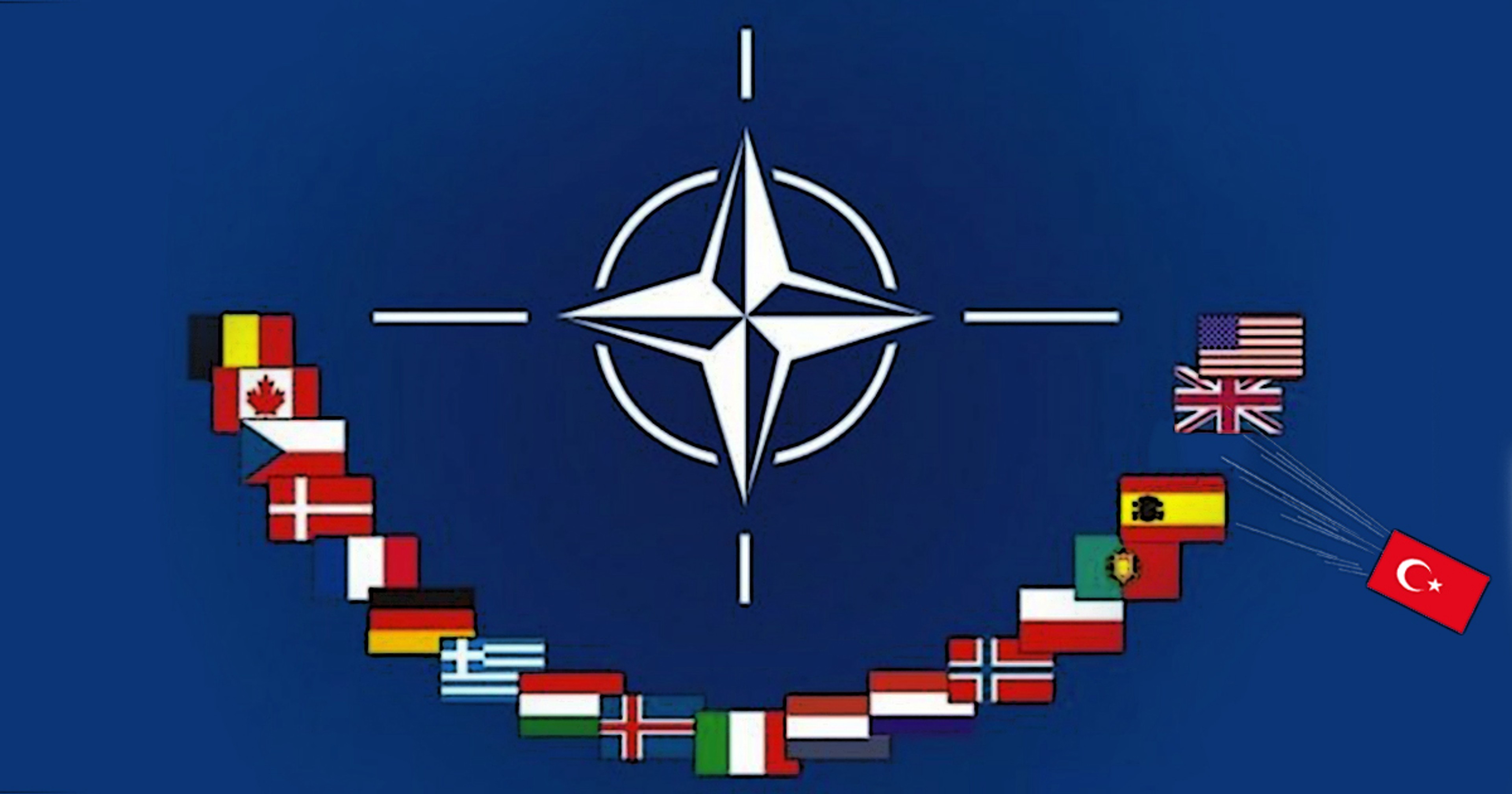Weekend Roundup: The Politics of Decoupling

Great Britain seeks to leave the European Union. (CC/WorldPost Illustration)
In the wake of the anti-globalization revolt of recent years, the practical process of decoupling from an integrated world is now underway on many fronts. The aim of the White House trade hawks is to dismantle supply chains and decouple the economies of the United States and China from each other. The aim of the Brexiteers is to de-integrate from the European Union. And now Turkey and NATO may be parting ways.
The decision by Turkish President Recep Tayyip Erdogan to install a Russian-made missile defense system is clearly at odds with the other members in an operationally integrated alliance whose mission is to defend Europe against Moscow’s aggressive ploys. Omer Taspinar and Michael O’Hanlon ask how the West, to the extent it still exists as a common entity, should respond.
“The place to start,” they write in The WorldPost, “is to see Erdogan as a nationalist rather than a dangerous Islamist. He is more interested in independence and sovereignty in decision-making.” Because his driving motive is nationalistic, they write, “A more accurate way to think about Erdogan’s Turkey is to compare it with France under Charles de Gaulle. Erdogan’s basic strategic vision reflects a nationalist quest for Turkish independence, grandeur and lost imperial glory — in short, a Turkish version of Gaullism.”
They continue: “Frustrated with the U.S. and in search of full independence in military affairs, de Gaulle’s France left the integrated military command of NATO in 1966. If Turkey insists on pursuing military and technological cooperation with Russia, Washington should encourage Turkey to consider this Gaullist option. Ankara could also see it as a way to protect its improved relationship with Russia.”

Turkey seeks its own way in NATO. (CC/WorldPost Illustration)
The Brexit vote delivered the initial populist jolt at the ballot box that has since swept the Western world. Pascal Lamy, the former head of the World Trade Organization and a key European official during the years Europe marched headlong toward integration, ponders how to get beyond the protracted mess that has mired Great Britain in paralysis these past three years.
Going back to the days of Winston Churchill, he writes in The WorldPost, the disposition of the U.K. has always been to remain in Europe as much as possible economically, but as little as possible politically. What makes withdrawal in 2019 so complex, says Lamy, is that the U.K. now has to figure out how to unscramble decades of forging extensive links across the borderless single market that followed the far simpler years of a customs union, which only reduced tariffs while keeping borders intact.
Lamy notes that borders were only removed in 1992 after a long and complex process of regulatory convergence and harmonization that put diverse economies on a relatively even footing. Leaving the single market now means recreating that border and abandoning the political compromises made by all stakeholders in order to establish that convergence.
“In other words,” Lamy argues, “it is no longer possible to negotiate economically without negotiating politically. The reason is that deep economic integration is about aggregating collective preferences, which is a political process. For example, if we have a single regulation on data privacy in the E.U., and it is different from the American one and the Chinese one, this is not science, it is politics. It is feelings, philosophy and culture. It is somehow about morals, quite far away from the initial economic efficiency approach to the internal market. The reality is that the progressive economic integration of the E.U. has made it more costly to exit politically.”
What’s needed to manage an orderly departure, says Lamy, is to “narrow the spectrum” of possible arrangements down to a specific set of links commensurate with the sense of autonomy the British voters mandated. The Brits must decide in precise terms how much political integration they can swallow for the economic benefits they want to retain. “Of course,” he states the obvious, that “would entail a compromise — not a compromise between the E.U. and U.K., but within the U.K.”
If the politics of compromise over many years moved step by step toward a convergent, integrated system, a politics of compromise is also required to diverge from it.
The immediate road ahead is pretty clear. The nationalist eruptions of late mark the advent of a new era of post-globalization. What comes now is a prolonged period that will be dominated by the divisive and disruptive politics of decoupling. Untying the knot is always far more grueling than tying it in the first place.
Beyond that, what is likely to emerge on the other side will not be some pure break with integration. A useful metaphor here might be the evolution of architecture. As the Dutch architect Rem Koolhaas once put it to me in an interview, “to the extent there was a global aesthetic developing in architecture, which would have been an international style, already in the 1980s people were critical of its inability to establish distinct identities. That is the reason postmodernism emerged. It both embraced a global aesthetic yet resisted it by mixing it with vernacular styles.”